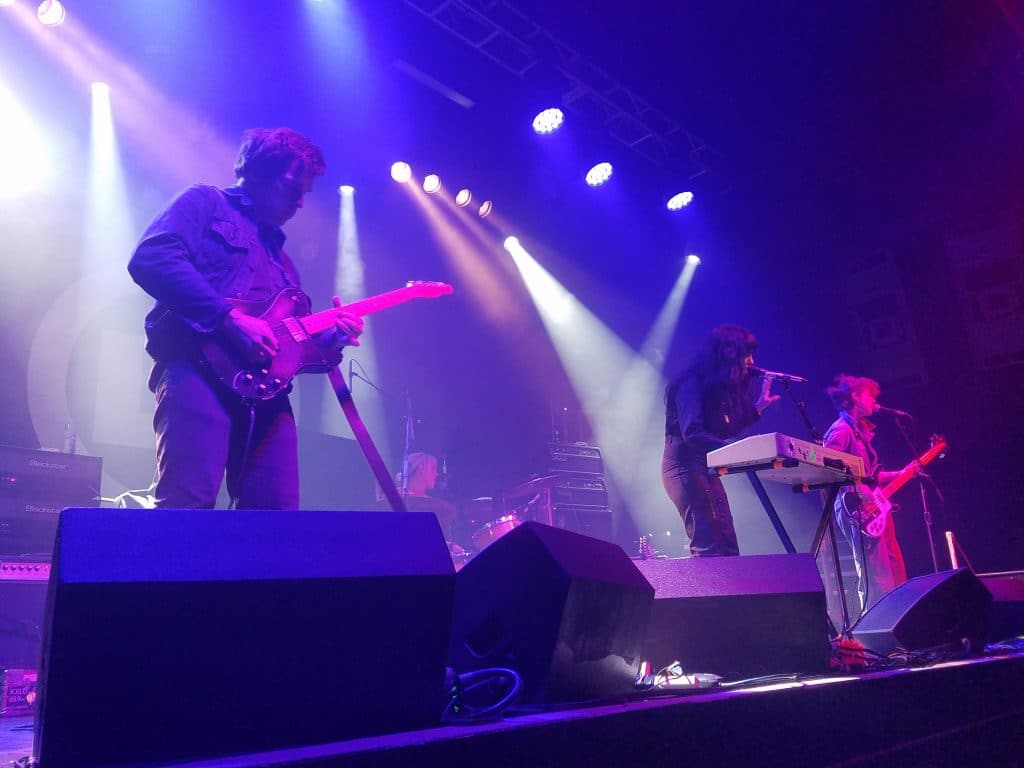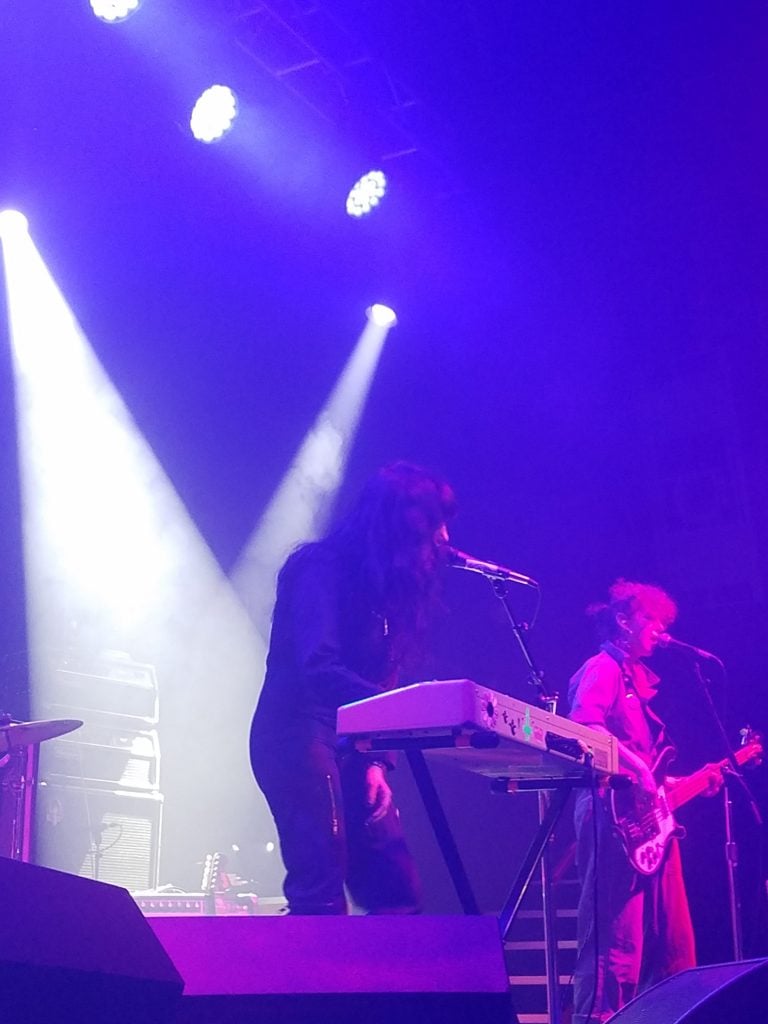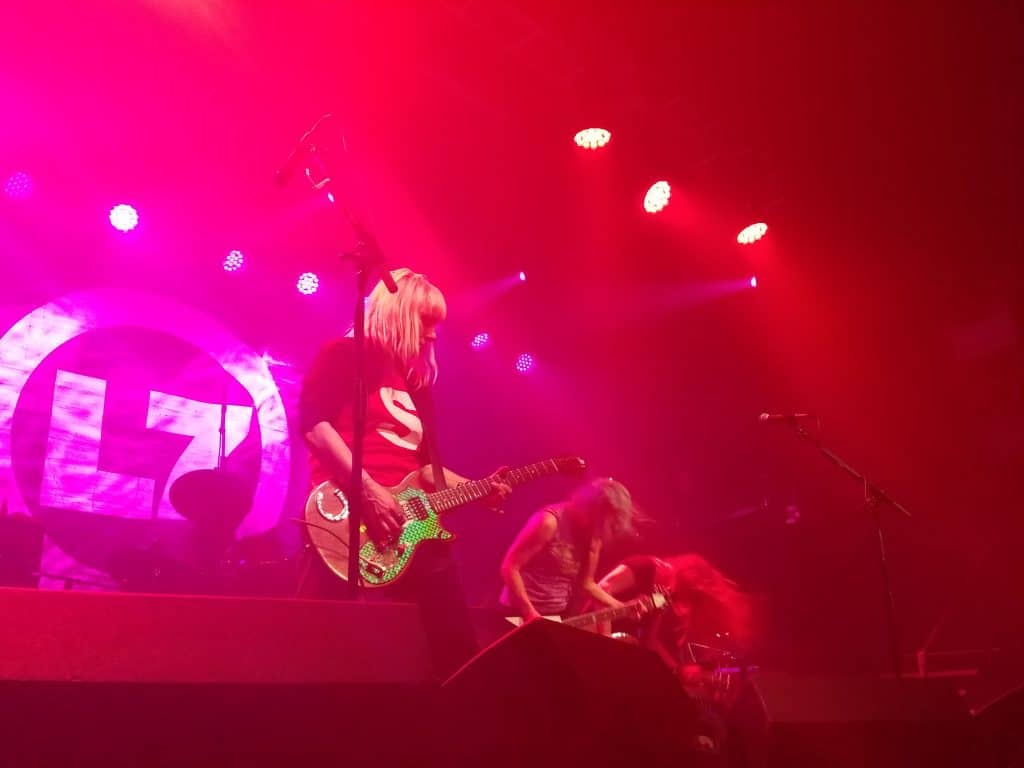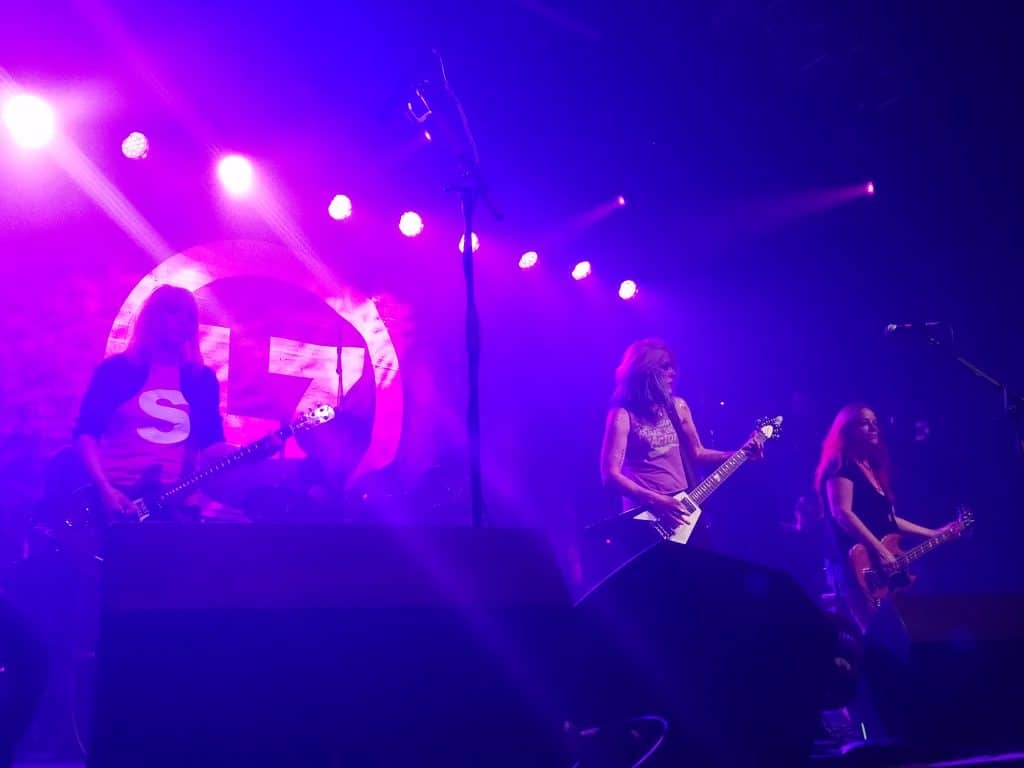The coalescence of gritty rock pioneers L7 and extraterrestrial punk newcomers Death Valley Girls is like a sharp slap—it leaves you feeling alive, gets under your skin and makes you want to fight.
The two groups joined forces Thursday night at First Avenue in Minneapolis to present a truly visceral experience.
The fuzzy darkness swallows the Mainroom as the projection screen rises like a yawning mouth to reveal Los Angeles’ Death Valley Girls. Formed in 2013, the group is comprised of lead singer Bonnie Bloomgarden, bassist Alana Amram, lead guitarist Larry Schemel and drummer Laura Harris.
Bloomgarden’s voice swells into an echoing, piercing entity that grabs the audience by the throat as she sings songs like “I’m a Man, Too” and “Death Valley Boogie,” at times both shrilly screaming and intoning more melodic choruses into the mic. She loses herself in the performance as she laughs, leans into her guitar and keyboard as if they’re attached and bewitches the audience with a liturgy of rock. Her joy is intoxicating.

Amram and Bloomgarden often face each other to play guitar, and they swoop into a single mic during certain portions of songs to amplify and blend their voices into an intimate complexity of sounds, so close they become a single being. Bloomgarden’s green eyeshadow-streaked gaze probes the crowd as she sings, and her black snakes of hair engulf her face.
While Schemel is subtle and stoic while playing, he is an undoubtedly skilled guitarist who brings sludgy blues riffs to the band’s chaotic energy. It is interesting to watch him with the knowledge that he grew up playing music alongside his sister, Patty, who is the former drummer of 90s alternative rock band Hole.
Seeing Death Valley Girls perform live is an otherworldly experience that should be required for fans of good rock music, though their own description of the band as an “acid-tripping science experiment that’s been buried alive and resurrected as a sexually liberated dystopian chain-gang” should be enticing enough.

It’s kind of difficult to put words to L7’s performance more than three decades after they began recording music.
They take the stage as veterans, featuring the band’s original lineup of vocalist and guitarist Donita Sparks, guitarist and vocalist Suzi Gardner, drummer Dee Plakas and bassist Jennifer Finch. While the group took an indefinite hiatus in 2001, Sparks clears up any controversy over their decision to start making music again with a blunt statement: “We came back to bitch,” which echoes the title of the 2018 track “I Came Back to Bitch.”
Their anti-establishment attitude permeates the entire performance, and they play old favorites including “Shitlist” and “Pretend We’re Dead,” sprinkling in new songs like “Dispatch from Mar-a-Lago,” a jab at President Donald Trump and the government. It’s no surprise when a mosh pit quickly forms and stays strong throughout the set.

L7 still has it, there’s no question. Founded in Los Angeles, the group’s career spans six studio albums and three live albums, among others. The women of L7 are pioneers, influencing and being associated with grunge and the feminist punk Riot Grrrl movement of the 90s.
Their sound hovers between heavy metal and pop, and Sparks and Finch sync many of their movements from head banging to struts in circles. Though Gardner is sick during the show and her voice waivers, she is still arguably the coolest member on stage and screams into the mic several times while wearing Ray-Ban Wayfarers.

The show is a complete reiteration of the fact that women in all their forms rule, and bands that paved or are paving the way toward revolution are worthy of attention and celebration.







Comments
0 comments